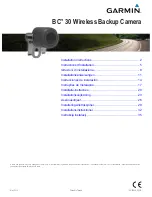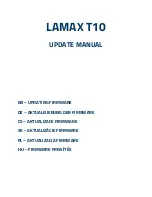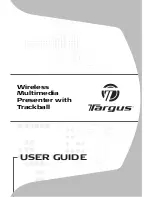
xiMU - Technical Manual Version 2.10
87
4. Should Purchaser resell Retained Goods, it assigns to the Supplier, already today, all claims it will have against its customers
out of the resale, including any collateral rights and all balance claims, as security, without any subsequent declarations to this
effect being necessary. If the Retained Goods are sold on together with other items and no individual price has been agreed with
respect to the Retained Goods, Purchaser shall assign to the Supplier such fraction of the total price claim as is attributable to the
price of the Retained Goods invoiced by Supplier.
5. (a) Purchaser may process, amalgamate or combine Retained Goods with other items. Processing is made for Supplier.
Purchaser shall store the new item thus created for Supplier, exercising the due care of a diligent business person. The new
items are considered as Retained Goods.
(b) Already today, Supplier and Purchaser agree that if Retained Goods are combined or amalgamated with other items that are
not the property of Supplier, Supplier shall acquire co-ownership in the new item in proportion of the value of the Retained Goods
combined or amalgamated to the other items at the time of combination or amalgamation. In this respect, the new items are
considered as Retained Goods.
(c) The provisions on the assignment of claims according to No. 4 above shall also apply to the new item. The assignment,
however, shall only apply to the amount corresponding to the value invoiced by Supplier for the Retained Goods that have been
processed, combined or amalgamated.
(d) Where Purchaser combines Retained Goods with real estate or movable goods, it shall, without any further declaration being
necessary to this effect, also assign to Supplier as security its claim to consideration for the combination, including all collateral
rights for the prorate amount of the value the combined Retained Goods have on the other combined items at the time of the
combination.
6. Until further notice, Purchaser may collect assigned claims relating to the resale. Supplier is entitled to withdraw Purchaser's
permission to collect funds for good reason, including, but not limited to delayed payment, suspension of payments, start of
insolvency proceedings, protest or justified indications for overindebtedness or pending insolvency of Purchaser. In addition,
Supplier may, upon expiry of an adequate period of notice disclose the assignment, realize the claims assigned and demand that
Purchaser informs its customer of the assignment.
7. The Purchaser shall inform the Supplier forthwith of any seizure or other act of intervention by third parties. If a reasonable
interest can be proven, Purchaser shall, without undue delay, provide Supplier with the information and/or Documents necessary
to assert the claims it has against its customers.
8. Where the Purchaser fails to fulfill its duties, fails to make payment due, or otherwise violates its obligations the Supplier shall
be entitled to rescind the contract and take back the Retained Goods in the case of continued failure following expiry of a
reasonable remedy period set by the Supplier; the statutory provisions providing that a remedy period is not needed shall be
unaffected. The Purchaser shall be obliged to return the Retained Goods. The fact that the Supplier takes back Retained Goods
and/or exercises the retention of title, or has the Retained Goods seized, shall not be construed to constitute a rescission of the
contract, unless the Supplier so expressly declares.
Article IV: Time for Supplies; Delay
1. Times set for Supplies shall only be binding if all Documents to be furnished by the Purchaser, necessary permits and
approvals, especially concerning plans, are received in time and if agreed terms of payment and other obligations of the
Purchaser are fulfilled. If these conditions are not fulfilled in time, times set shall be extended reasonably; this shall not apply if
the Supplier is responsible for the delay.
2. If non-observance of the times set is due to:
(a) force majeure, such as mobilization, war, terror attacks, rebellion or similar events (e. g. strike or lockout);
(b) virus attacks or other attacks on the Supplier’s IT systems occurring despite protective measures were in place that comp
lied
with the principles of proper care;
(c) hindrances attributable to German, US or otherwise applicable national, EU or international rules of foreign trade law or to
other circumstances for which Supplier is not responsible; or
(d) the fact that Supplier does not receive its own supplies in due time or in due form such times shall be extended accordingly.
3. If the Supplier is responsible for the delay (hereinafter referred to as "Delay") and the Purchaser has demonstrably suffered a
loss therefrom, the Purchaser may claim a compensation as liquidated damages of 0.5 % for every completed week of Delay, but











































